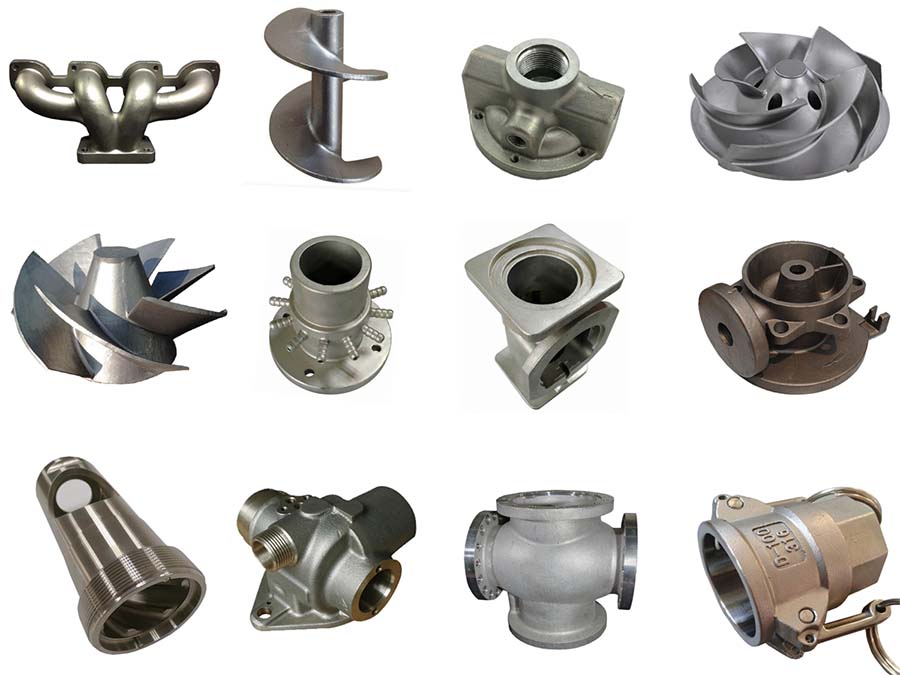Steel Casting VS. Alloy Casting
Other alloy castings refer to casting parts made of other casting alloy, mainly including gray cast iron, ductile cast iron, cast aluminum alloy, cast zinc alloy and cast copper.
Steel castings can be used in a variety of different working conditions, and its comprehensive mechanical properties are better than any other alloy casting. And there are a variety of high-alloy steels suitable for special purposes.
Steel castings are preferentially used in these situations: parts subject to high tensile stress or dynamic load, important pressure vessel castings, parts subject to larger loads at low or high temperatures and other key components. Parts that work under impact and wear conditions should be cast with high manganese steel.
However, the shock absorption, wear resistance, fluidity and casting properties of steel castings are worse than those of cast iron. At the same time, the cost of steel castings is higher than that of iron castings. In addition, under the same rigidity conditions, the relative weight of steel castings is twice that of aluminum alloy castings. Therefore, when choosing a cast metal, it is necessary to comprehensively consider the actual use and cost performance, and make the most reasonable choice.
Steel castings are classified according to their chemical composition and are divided into cast carbon steel parts and cast alloy steel parts. According to the classification of use characteristics, steel castings can be divided into engineering and structural cast steel (carbon alloy steel and alloy structural steel), cast special steel parts (corrosion-resistant stainless steel, heat-resistant steel, wear-resistant steel, nickel-based alloy ) and casting tool steel (tool steel, die steel). In the foundry industry, the materials used for steel castings are generally subdivided as follows:
- Cast carbon steel: cast low carbon steel, cast medium carbon steel, cast high carbon steel (high strength carbon steel)
- Medium-alloy steel and low-alloy steel for casting: cast manganese steel, cast silico-manganese steel, cast manganese-molybdenum steel, cast manganese-molybdenum-vanadium copper steel, cast chromium steel, chromium-molybdenum cast steel, chromium-manganese-silicon cast steel, chromium-manganese Molybdenum cast steel, chromium molybdenum vanadium cast steel, chromium copper cast steel, molybdenum cast steel, chromium nickel molybdenum cast steel, etc. Different chemical elements can play a different role in improving the corresponding performance. In the following articles, we will introduce the properties of related alloy steels and the roles played by chemical elements one by one.
- Corrosion-resistant stainless steel: ferritic stainless steel, martensitic stainless steel, austenitic stainless steel and austenitic-ferritic duplex stainless steel.
- Heat-resistant steel: high chromium steel, high chromium nickel steel and high nickel chromium steel.
- Wear-resistant cast steel: wear-resistant manganese steel, wear-resistant chromium steel
- Casting special steel and professional steel: low-temperature cast steel, foundry tool steel (die steel), pressure cast steel, precision casting steel, centrifugal cast cast steel pipe.

 русский
русский



